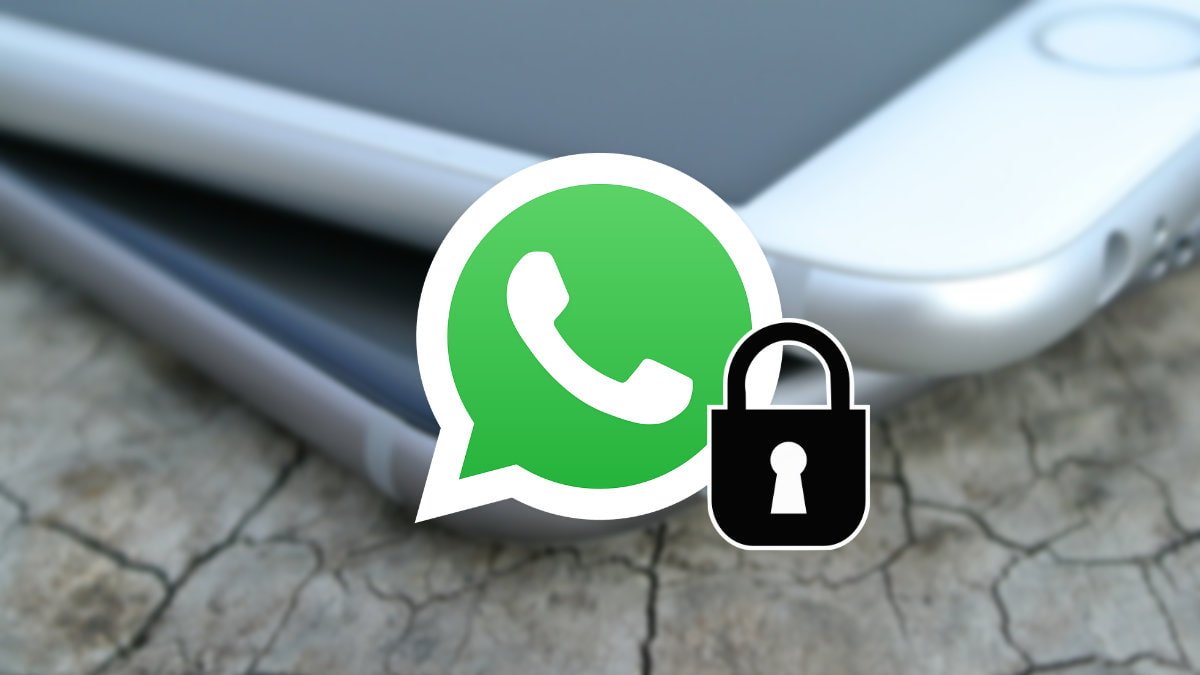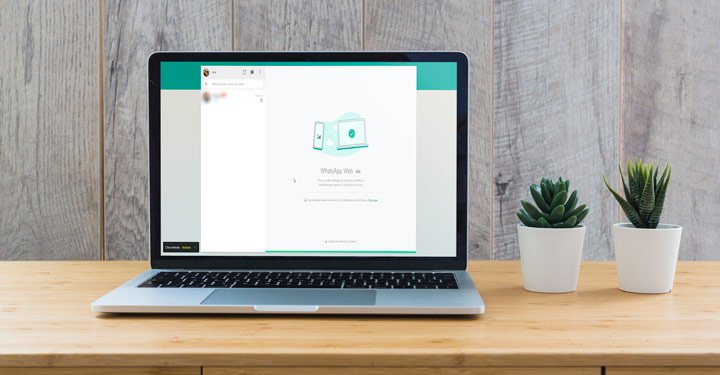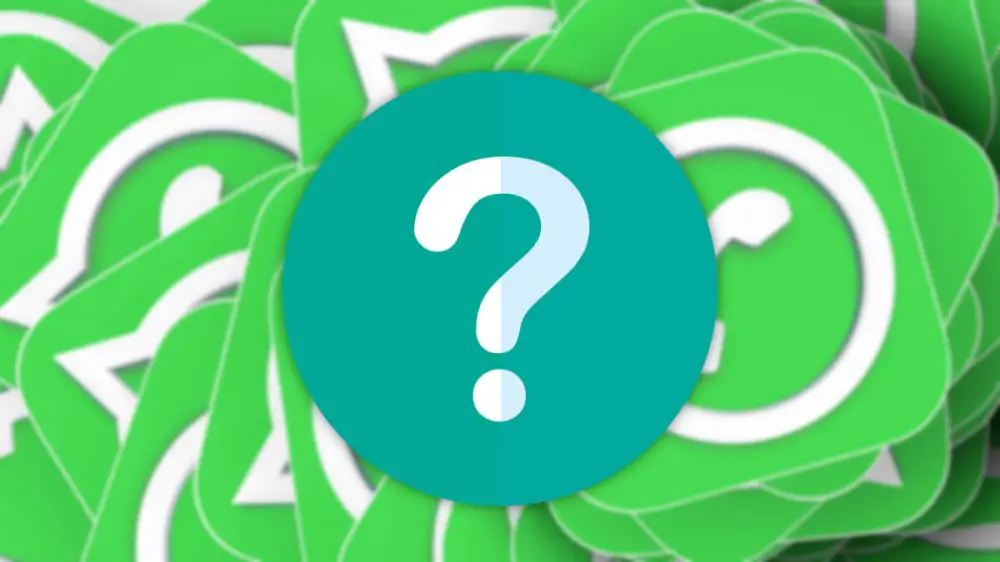For many years a question has arisen among instant messaging users and it is whether it is safe to use WhatsApp , but the answer is not as simple as yes or no. In August 2016, the messaging platform announced end-to-end encryption in chats, as the main measure to protect user data from the dangerous eyes of cybercriminals.
However, for many more years the web version of messaging continued to be devoid of security and, although the mobile client was “impenetrable”, the truth is that for a long time the web access on computers was a back door to violate the conversations of the users. users.
Millions of users exposed

In mid-2021, WhatsApp recognized that it had a network of two billion active users , which means that there are millions and millions of data that are shared daily through the platform, not only conversations, but also photographs, images, videos. , documents and even your location.
In order to access this information, the application requests access permission to your gallery, your files, the microphone and also the camera; in the cases of making video calls… Basically, we are granting absolute access to our privacy and, although Google has made efforts on Android as well as Apple on iOS, our privacy can always have a certain vulnerability. We must not forget that WhatsApp is now part of the Meta conglomerate (formerly Facebook), ceasing to be an independent platform.
These accesses are, without a doubt, a double-edged sword. End-to-end encryption prevents third parties from having access to your information and ensures that the company does not have permission to do so either, but how certain are we of this?
One of the most famous cases of WhatsApp exposure was that of Jeff Bezos , the controversial businessman who owns Amazon. The executive was hacked by an alleged firm from Saudi Arabia, with a video that when executed gave them access to the phone and everything that was stored there. Meta has even made complaints about the Israeli company NSO because they have dedicated themselves to exploiting vulnerabilities that have appeared in the messaging platform.
Encryption may not be enough. A Reuters note reported that senior UN officials have been banned from using WhatsApp for security since June 2021. According to the report, the encryption system used by WhatsApp is owned by Signal, a computer security company. that also has its own messaging app, which leaves the possibility of being potentially dangerous, since the security would really depend on a third party.
For its part, from Meta they assure that the vulnerability problems could be related to failures in the operating systems themselves instead of their messaging app. Meta’s communications director himself pointed out at the time that the vulnerability experienced by Jeff Bezos could be due to a failure of iOS and not of its platform .
The list of security flaws, beyond the leak of a conversation, has been long for WhatsApp. Since a simple call allowed malicious data to be inserted into mobile phones, a vulnerability was also introduced that allowed evading biometric security controls to enter the application, even at some point it was possible to pretend that the messages were written by another person .
Probably, these security flaws do not sound too scandalous if you are a regular user of the app, without using it to handle private and highly important material, but even in private use you can experience some security problems.
WhatsApp has been implementing different security tools that allow anyone to further protect their account.
- Biometric identification : In WhatsApp you can activate biometric functions to unlock the chat, approve new devices or to connect with a computer, it is a function that is within the security of the platform and you can use it with your fingerprint or face.
- Two-factor authentication : You can activate two-factor authentication by creating a unique PIN that you must enter from time to time in the application and when you are going to change devices to avoid being spoofed.
- Deactivate files : You can configure the application to prevent it from storing the files you receive, in this way, it remains in end-to-end communication, without being stored in backup copies and there is no backup of the information you handle in messaging , be they photos, videos, audios or documents.
WhatsApp Web: a back door

Although WhatsApp Web now has end-to-end encryption , as is the case with the mobile application, the truth is that it is a window for exposing our data. In many cases we use this type of tool to access our messages on computers that can even be shared, but if you don’t voluntarily close the session, it can stay there for a long time.
The problem with this type of failure is that WhatsApp does not constantly renew the credentials on this online platform and does not request any type of PIN or verification from time to time to ensure that you truly continue to use messaging from this medium, which leaves the possibility open. possibility of another person supplanting you or stealing your information due to carelessness.
Electronic security specialists do not recommend the use of computer clients for messaging services , since there is no way to have control over the connection time or verification of the user’s identity.
Safer Telegram and Signal
After the announcement of the change in the privacy policies that WhatsApp would implement in 2021, a stampede of users began to flee the platform because they felt that their information would be violated and that meant that the numbers of downloads of other options such as Telegram and Signal increased considerably. , the reason: greater privacy.
The security of personal data is something that matters more and more to users , it is precisely what caused everyone to want to leave WhatsApp in terror, feeling that their information was going to be shared with Meta and everything that this network empire social means.
In the case of Telegram, many functions are more secure than WhatsApp, for example, you do not need to make a copy of saved messages on the device , it also includes other functions such as creating conversations that self-destruct. Later, this function was incorporated into WhatsApp, although it does not work in the same way.
When we see Signal, we find that its strength is anonymity and privacy, there you do not have to register phone numbers and your contacts are not exposed in any way, even less the information and any file that you can send this way.
Finally, it only remains then to answer the initial question , is WhatsApp safe? When using it directly on the mobile, yes ; however, it is advisable to avoid using it as a means to share sensitive information and also to consider that the desktop version could make you an easy target for an attack to steal information.

